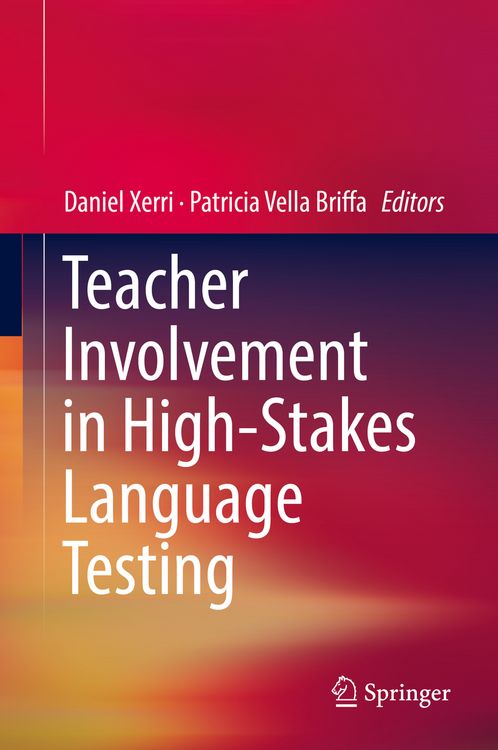
Teacher Involvement in High-Stakes Language Testing
-
- Hardcover ausgewählt
- Taschenbuch
- eBook
-
Sprache:Englisch
135,99 €
inkl. MwSt,
Lieferung nach Hause
Beschreibung
Details
Einband
Gebundene Ausgabe
Erscheinungsdatum
17.05.2018
Abbildungen
XV, 52 illus., schwarz-weiss Illustrationen
Herausgeber
Daniel Xerri + weitereVerlag
SpringerSeitenzahl
345
Maße (L/B/H)
24,1/16/2,6 cm
Gewicht
6682 g
Auflage
1st ed. 2018
Sprache
Englisch
ISBN
978-3-319-77175-5
This book advocates that teachers should play an active role in high-stakes language testing and that more weight should be given to teacher judgement. This is likely to increase the formative potential of high-stakes tests and provide teachers with a sense of ownership. The implication is that the knowledge and skills they develop by being involved in these tests will feed into their own classroom practices. The book also considers the arguments against teacher involvement, e.g. the contention that teacher involvement might entrench the practice of teaching to the test, or that teachers should not be actively involved in high-stakes language testing because their judgement is insufficiently reliable. Using contributions from a wide range of international educational contexts, the book proposes that a lack of reliability in teacher judgement is best addressed by means of training and not by barring educators from participating in high-stakes language testing. It also argues that their involvement in testing helps teachers to bolster confidence in their own judgement and develop their assessment literacy. Moreover, teacher involvement empowers them to play a role in reforming high-stakes language testing so that it is more equitable and more likely to enhance classroom practices. High-stakes language tests that adopt such an inclusive approach facilitate more effective learning on the part of teachers, which ultimately benefits all their students.
Unsere Kundinnen und Kunden meinen
Verfassen Sie die erste Bewertung zu diesem Artikel
Helfen Sie anderen Kund*innen durch Ihre Meinung
Kurze Frage zu unserer Seite
Vielen Dank für dein Feedback
Wir nutzen dein Feedback, um unsere Produktseiten zu verbessern. Bitte habe Verständnis, dass wir dir keine Rückmeldung geben können. Falls du Kontakt mit uns aufnehmen möchtest, kannst du dich aber gerne an unseren Kund*innenservice wenden.
zum Kundenservice